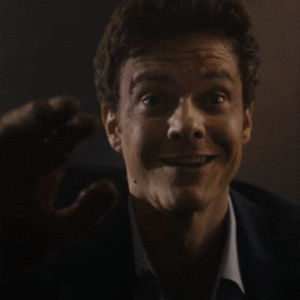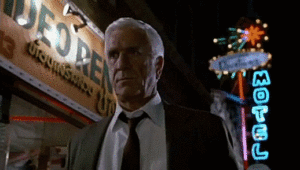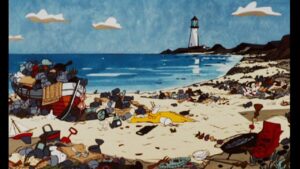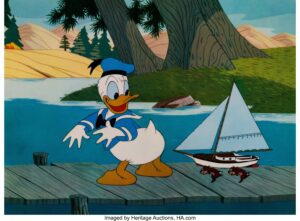The Great Dictator (1940)
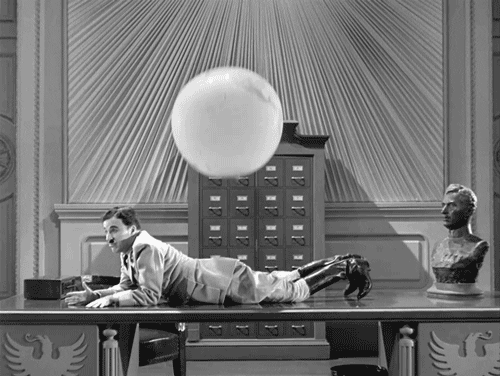
…………………………………………………
The Great Dictator Movie Review
The Great Dictator is a 1940 comedy film starring, written and directed by Charlie Chaplin. It is one of the genre’s best movies and one of the most important.
………………………………………………….
“Look up, Hannah. Look up!“
…………………………………………………..
…………………………………………………..
A Jewish barber loses his memory after a plane crash. When he finally tries to make sense of his surroundings, he finds himself subjected to a dictator’s tyranny. Chaplin made this movie before it was known to just what atrocious extent Hitler’s crimes went, and he stated that he would never make it had he known the whole truth. Still, we should all be thankful that he did end up making it as what we have here is an absolute masterpiece.
The Tramp character had been a staple of Chaplin’s comedy routine for decades, but here he did not revisit him for the first time ever. Though many would argue that The Barber is The Tramp as they look similar, the character and the whole movie serve a different, more grandiose thematic purpose this time around.
Yes, this is a political satire that is a comedy at its core, but also a genuinely moving message drama in that now iconic ending speech. Although some would find that ending objectionable as being overly serious, I personally disagree with that thinking. In fact, that ending is the true heart of the whole picture, and by far the most memorable thing about it.
…………………………………………………..
…………………………………………………..
It was crucial for Chaplin to include that speech having in mind that this was the period when the US was still in a fine relation with Nazi Germany, so people needed to be woken up from their dangerous slumber and realize the reality that is the worst political party in human history. This speech is beautifully written and simple enough, but still containing so many incredible lines that promote peace and love in the world. The final moment with Hannah listening was just so heartwarming that it almost made me cry. This is one of the greatest endings in cinematic history, there is no question about it.
As for the remainder of the movie, Chaplin skillfully mixes drama and comedy here, but overall this is a pure comedy as there are so many comedic situations interspersed throughout. Some are definitely very silent in approach, which hearken back to the actor’s previous works, but a couple are very much dialogue-driven with the best example being that hilarious first speech from Hynkel. The actor perfectly captured Hitler’s speech patterns and the entire persona.
Another highlight has to be the barbershop sequence that would famously influence the Looney Tunes later down the line. This scene was absolutely remarkable in mixing Wagner’s music with the haircutting action on screen brilliantly. Another standout scene was the first meeting of Hannah and The Barber with the pan gags being wonderfully old-fashioned and endearing.
…………………………………………………..
…………………………………………………..
She is a fantastic character, so courageous and so admirable in her human qualities that she was the best possible companion to the main star. Paulette Godard was just lovely in the role. Chaplin’s acting is of course incredible and this is in my opinion his career-best work. He is charming and hilarious per usual, but he also delivered in terms of raw emotion much more than ever before, and the fact that he excelled so much in his first ever talkie needs to be appreciated. There may have been fears that he could not be as good in a speaking role, but those fears were squashed with what is the best acting performance of 1940.
I need to praise one more actor here and that man is of course the Oscar-nominated Jack Oakie. It is rare for the Academy to actually nominate a comedy actor, but here this was much deserved as Oakie’s Benito Mussolini was hilarious and perfectly realized. The two clashing against each other produced many very amusing moments throughout.
The Great Dictator was, yes, the first talkie for Chaplin, and he killed it right off the bat. The acting is uniformly amazing, but also the dialogue is fabulous and the sound is fantastic. The cinematography is also superb as the film’s more cinematic moments such as that ending were impeccably crafted. Similar praise should be directed toward the production design team as the interiors look meticulously detailed and quite livable while the costumes are excellent too. The whole picture is a genuine masterpiece in the comedy realm and it deserved all of its Oscar noms, but it should have won at least some of them. It just might be my favorite Chaplin movie, which says a lot as he’s had so many classics.
…………………………………………………..
…………………………………………………..




